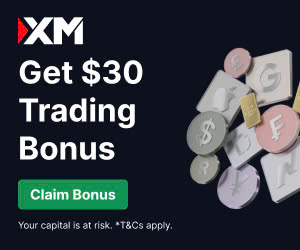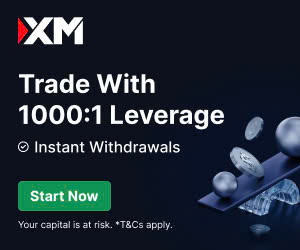
10 minute read
Is XM Legal in Europe? A Comprehensive Review
The world of online trading is vast and dynamic, with platforms like XM Group attracting millions of traders globally. For European traders, one critical question stands out: Is XM legal in Europe? This comprehensive review dives into XM’s regulatory status, operational framework, and safety measures to determine its legitimacy in the European market. Whether you’re a seasoned trader or a beginner, understanding the legal standing of a broker is essential for a secure trading experience. Let’s explore XM’s compliance with European regulations, its features, and what makes it a trusted choice for traders across the continent.

💥 Trade with XM now: Open An Account or Visit Brokers 🏆
What is XM Group?
Founded in 2009, XM Group (commonly referred to as XM) is a globally recognized forex and CFD broker headquartered in Limassol, Cyprus. With over 10 million clients in 190+ countries, XM offers trading on a wide range of financial instruments, including forex pairs, commodities, indices, stocks, cryptocurrencies, and precious metals. The broker is known for its user-friendly platforms (MetaTrader 4 and MetaTrader 5), competitive spreads, and flexible account types catering to both novice and experienced traders.
XM operates under the umbrella of Trading Point Holdings, with multiple subsidiaries regulated in various jurisdictions. Its reputation is bolstered by industry awards, such as “Best Forex Broker in Europe” and “Best Forex Broker in Asia,” reflecting its commitment to quality and transparency. But how does XM fare in the highly regulated European market? Let’s break it down.
Is XM Legal in Europe? Understanding the Regulatory Framework
The legality of a broker in Europe hinges on its compliance with the region’s stringent financial regulations, primarily governed by the European Union’s Markets in Financial Instruments Directive (MiFID II). MiFID II sets high standards for investor protection, transparency, and market integrity, ensuring that brokers operate ethically and safeguard client funds.
XM’s Regulation in Europe
XM is fully legal in Europe, primarily through its subsidiary, Trading Point of Financial Instruments Ltd, which is authorized and regulated by the Cyprus Securities and Exchange Commission (CySEC) under license number 120/10. CySEC is a well-respected Tier-1 regulator within the European Economic Area (EEA), ensuring compliance with MiFID II standards. This license allows XM to offer investment and ancillary services across EU member states through a system known as “passporting.”
Passporting enables a broker licensed in one EU country (e.g., Cyprus) to operate in other EU nations without needing additional licenses. For example, a trader in Germany, France, or Spain can access XM’s services under the same regulatory oversight, provided the broker notifies local authorities like BaFin (Germany) or AMF (France). This framework simplifies cross-border operations while maintaining robust investor protections.
Additional Global Regulations
Beyond Europe, XM operates under other reputable regulators, enhancing its global credibility:
· Australian Securities and Investments Commission (ASIC): Regulates XM’s Australian entity, ensuring adherence to strict financial standards.
· Financial Services Commission (FSC) of Belize: Oversees XM’s operations in certain non-EU regions.
· Dubai Financial Services Authority (DFSA): Regulates Trading Point MENA Limited, catering to clients in the UAE.
While XM is not regulated by the UK’s Financial Conduct Authority (FCA) post-Brexit, it accepts UK clients under its ASIC-regulated entity. This multi-jurisdictional oversight underscores XM’s commitment to regulatory compliance, making it a safe choice for European traders.
Why Regulation Matters for European Traders
Regulation is the backbone of a secure trading environment. Here’s why it’s crucial for European traders:
· Client Fund Protection: Regulated brokers like XM must segregate client funds from company funds, ensuring that traders’ money is safe even if the broker faces financial difficulties. XM holds client funds in tier-one banks, such as Barclays Bank Plc, and complies with this requirement.
· Investor Compensation Fund: As a CySEC-regulated broker, XM is a member of the Investor Compensation Fund (ICF), which provides up to €20,000 in compensation per client in the unlikely event of broker insolvency.
· Negative Balance Protection: XM offers negative balance protection to both EU and non-EU clients, preventing traders from losing more than their deposited funds during volatile market conditions.
· Transparency and Fair Practices: Regulated brokers must adhere to strict guidelines on pricing, execution, and fee disclosure, ensuring fair treatment of clients.
These safeguards make XM a reliable platform for European traders, aligning with the EU’s focus on consumer protection and market stability.
XM’s Safety Features for European Traders
Beyond regulatory compliance, XM implements robust safety measures to protect its clients:
1. Segregated Client Accounts
XM keeps client funds in segregated accounts at top-tier banks, separate from its operational funds. This ensures that client money cannot be used for the broker’s business activities or by liquidity providers, offering an extra layer of security.
2. Advanced Encryption
XM employs Secure Socket Layer (SSL) encryption technology across its platforms and websites, safeguarding sensitive data like personal information and financial transactions from unauthorized access. This is particularly important in today’s digital age, where cybersecurity threats are prevalent.
3. Negative Balance Protection
Market volatility can lead to significant losses, but XM’s negative balance protection ensures that traders’ accounts cannot fall below zero, protecting them from unexpected debts.
4. Robust Complaint Handling
XM has a transparent complaint-handling procedure, allowing traders to raise concerns with the broker or escalate issues to CySEC if needed. This reflects XM’s commitment to customer satisfaction and legal compliance.
5. No Requotes or Hidden Fees
XM follows a no-requotes policy and ensures transparent pricing with no hidden commissions, aligning with MiFID II’s emphasis on fair execution and cost disclosure.
These features collectively enhance XM’s trustworthiness, making it a secure platform for European traders.
XM’s Trading Conditions: What European Traders Can Expect
XM’s regulatory compliance is just one part of the equation. Its trading conditions also play a significant role in its appeal to European traders. Here’s a closer look:
1. Account Types
XM offers four account types to suit different trading styles:
· Micro Account: Ideal for beginners, with a minimum deposit of $5 and micro-lot trading.
· Standard Account: Suitable for experienced traders, with a $5 minimum deposit and standard lot sizes.
· Ultra Low Account: Offers tighter spreads (from 0.6 pips) with a $5 minimum deposit.
· Shares Account: Designed for stock trading, with a $10,000 minimum deposit and no leverage.
Islamic (swap-free) accounts are also available, catering to traders who require Sharia-compliant trading.
2. Leverage and Spreads
Leverage varies by region due to regulatory restrictions. In Europe, XM adheres to ESMA (European Securities and Markets Authority) rules, capping leverage at:
· 1:30 for major forex pairs.
· 1:20 for non-major forex pairs, gold, and major indices.
· 1:10 for commodities and other instruments.
Spreads start from 0.6 pips on Ultra Low accounts, making XM competitive compared to other brokers. However, spreads may widen during volatile market conditions, which is standard in the industry.
3. Trading Platforms
XM supports MetaTrader 4 (MT4) and MetaTrader 5 (MT5), both available on desktop, web, and mobile devices. These platforms are renowned for their advanced charting tools, automated trading capabilities (via Expert Advisors), and user-friendly interfaces. The XM mobile app further enhances accessibility, allowing traders to manage their accounts on the go.
4. Order Execution
XM guarantees 100% order execution, with 99.35% of trades completed nearly instantly. Its no-requotes policy ensures that trades are executed at the requested price, even during fast-moving markets.
5. Educational Resources
XM provides extensive educational materials, including webinars, video tutorials, and market analysis, which are particularly valuable for novice traders. Live education sessions are available in multiple languages, reflecting XM’s commitment to supporting its diverse European client base.

💥 Trade with XM now: Open An Account or Visit Brokers 🏆
Pros and Cons of Trading with XM in Europe
To provide a balanced perspective, here are the key advantages and potential drawbacks of using XM in Europe:
Pros
· Top-Tier Regulation: CySEC oversight ensures compliance with MiFID II, offering robust investor protection.
· Low Minimum Deposit: Accounts start at $5, making XM accessible to traders of all levels.
· Diverse Instruments: Over 1,000 trading instruments, including forex, stocks, and cryptocurrencies.
· Fast Execution: 99.35% of trades are executed instantly, with no requotes.
· Comprehensive Support: 24/7 customer support in multiple languages, including live chat, email, and phone.
· Educational Tools: Extensive resources for beginners and advanced traders.
Cons
· No FCA Regulation: Post-Brexit, XM is not regulated by the FCA, which may concern UK traders.
· Limited Passive Investment Options: XM does not offer PAMM or MAM accounts for passive investing.
· Spread Widening: Spreads may increase during volatile periods, impacting trading costs.
· No Corporate Accounts: XM does not cater to corporate clients, limiting its appeal for institutional traders.
How to Verify XM’s Legitimacy in Europe
Before trading with any broker, it’s wise to verify its regulatory status. Here’s how European traders can confirm XM’s legitimacy:
· Check CySEC’s Website: Visit the CySEC website cysec.gov.cy and search for Trading Point of Financial Instruments Ltd (license number 120/10) to confirm its active status.
· Review License Details: XM’s official website xm.com provides detailed information about its licenses and regulatory entities. Ensure the entity serving you is CySEC-regulated if you’re in the EU.
· Contact Local Regulators: If you’re in a specific EU country (e.g., Germany or France), check with local authorities like BaFin or AMF to confirm XM’s passporting status.
· Read Client Reviews: Platforms like Quora, Reddit offer insights from real traders. While XM has generally positive feedback, be cautious of unverified claims or overly negative reviews without evidence.
Is XM Safe for European Traders?
Based on its regulatory framework, safety measures, and trading conditions, XM is a safe and legitimate broker for European traders. Its CySEC regulation, combined with MiFID II compliance, ensures that client funds are protected, and trading practices are transparent. Features like negative balance protection, segregated accounts, and SSL encryption further enhance its security profile.
However, no broker is without risks. Forex and CFD trading inherently involve high risk due to leverage, and traders should only invest what they can afford to lose. Conducting thorough research and practicing on a demo account can help mitigate risks and build confidence.
Alternatives to XM for European Traders
While XM is a strong choice, some traders may prefer alternatives based on specific needs. Here are three CySEC-regulated brokers worth considering:
· eToro: Known for social trading and copy trading, eToro is ideal for beginners. It’s regulated by CySEC, FCA, and ASIC.
· FXTM: Offers competitive spreads and a variety of account types, with CySEC regulation and a strong focus on education.
· AvaTrade: Provides a wide range of platforms and instruments, regulated by CySEC and other global authorities.
Each broker has unique strengths, so compare their features, fees, and regulatory status to find the best fit.
Conclusion: Should You Trade with XM in Europe?
XM Group is undeniably legal in Europe, operating under the reputable CySEC license and adhering to MiFID II regulations. Its commitment to client safety, transparent practices, and competitive trading conditions make it a trusted choice for traders across the EU. With low minimum deposits, diverse instruments, and robust educational resources, XM caters to both beginners and seasoned investors.
However, traders should remain mindful of the risks associated with forex and CFD trading and verify XM’s regulatory status for their specific country. By combining due diligence with XM’s reliable platform, European traders can confidently navigate the financial markets.
💥 Note: To enjoy the benefits of the partner code, such as trading fee rebates, you need to register with XM through this link: Open An Account or Visit Brokers 🏆
Read more:

